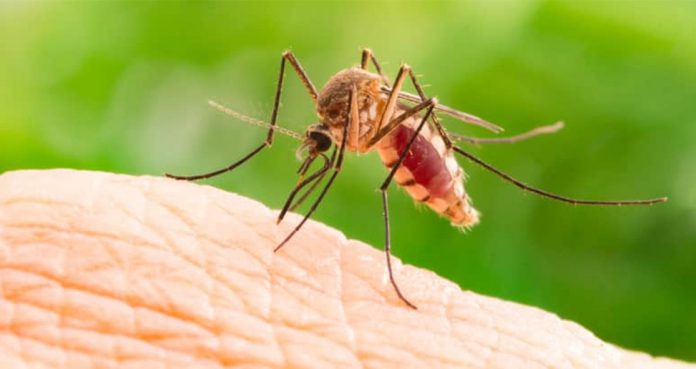According to a new study, a genetically modified fungus can rapidly destroy mosquitoes that spread malaria. The study that took place in Burkina Faso, West Africa, found that the genetically modified fungus killed 99% of malaria mosquitoes within 45 days.
The scientists said their objective is to stop the spread of malaria but not to make the insect extinct.
Malaria is known to kill more than 400,000 people per year. Worldwide, nearly 220 million cases of malaria are reported each year.
Researchers at the University of Maryland in the U.S. and the IRSS research institute in Burkina Faso identified a fungus known as Metarhizium pingshaense, which infects the Anopheles mosquitoes that are the main culprit in spreading malaria. They then tried to enhance the fungus.
Professor Raymond St. Leger from the University of Maryland told BBC News, “They’re very malleable, you can genetically engineer them very easily.”
The researchers then looked at a toxin that is found in a funnel-web spider found in Australia. To make the toxin that kills mosquitoes, the researchers genetically enhanced the fungus by adding it to spider venom.
St. Leger explained, “A spider uses its fangs to pierce the skin of insects and inject toxins, we replaced the fangs of spider with Metarhizium.”
Lab tests showed that the genetically modified fungus could kill the mosquitoes quicker and it took a very few fungal spores to get the job done. And the next step was to test the fungus in real-world conditions.
The scientists set up a 6,500-sq-ft fake village with plants, huts, water sources, and food for the mosquitoes in Burkina Faso. They covered the area with a double layer of mosquito netting so that the insects do not escape. They then mixed the fungal spores with sesame oil and rubbed them on to black cotton sheets. The mosquitoes had to land on those sheets to be exposed to the fungus.
The results showed the numbers soared when the mosquitoes were left alone. However, when the spider-toxin fungus was introduced, the researchers found only 13 mosquitoes left after 45 days.
Dr. Brian Lovett from the University of Maryland said, “The transgenic fungus quickly collapsed the mosquito population in just two generations.”
The scientists also found the fungus specifically killed the mosquitoes and did not affect other insects, such as bees.
Dr. Lovett added, “Our technology is not aiming to drive the extinction of mosquitoes, what we’re aiming to do is break malaria transmission in an area.”
Commenting on the promising results, Professor Michael Bonsall from the University of Oxford, said, “Neat – this is a super-exciting study. The prospects for controlling mosquitoes using this modified fungus are high.” He added, “Proportionate bio-safety regulations are needed to ensure that the viability of this and other approaches for vector [mosquito] control using genetic methods are not lost through overly zealous restrictions.”
Dr. Tony Nolan from the Liverpool School of Tropical Medicine said, “These results are encouraging. We need new and complementary tools to augment existing control methods, which are being affected by the development of insecticide-resistance.”























